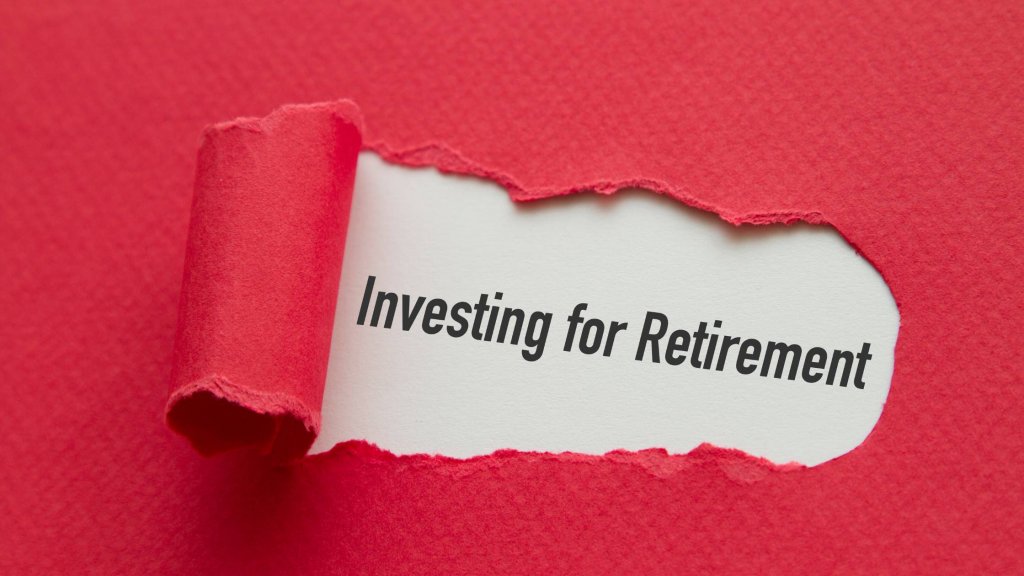VIEW BY TOPIC
- Finding Customers
- Business Systems
- Managing Employees
- Leadership
- Managing Money
Related Posts

Ready to Grow Your Business Fast?
Here’s How I Grew Five Businesses, and Eventually Sold One to a Fortune 500 Company.

What You Need To Know About Investing For Retirement
Investing for retirement is one of your most important financial decisions. With life expectancy increasing, it’s more important than ever to get started early on and make sure you have enough money to live comfortably in your later years.
Investing for retirement can seem intimidating and daunting, especially if you are new to the concept. However, by understanding a few key concepts and taking advantage of available resources, you can create a retirement plan that works for you.
This guide will provide an overview of what you need to know about investing for retirement.
1. Manage Your Taxes Wisely While Investing for Retirement
Managing your taxes wisely is an important component of any retirement plan. Tax laws are constantly changing, so it’s important to stay up to date with the latest information. Investing in tax-advantaged accounts such as a 401(k), IRA, or Roth IRA can help you save more for retirement while minimizing your tax burden.
Knowing how taxes will affect your investments and withdrawals from them is important. You should also account for other taxes, such as capital gains, state and estate taxes. Taking the time to understand how taxes work can help you make the most of your retirement savings.
2. Choose The Right Type Of Investments For Your Risk Level

The type of investments you make for your retirement will depend on your risk tolerance. Generally, those with a lower risk tolerance should choose safer investments such as bonds, CDs, and money market funds. For those willing to take more risks, stocks may be the best option. Diversifying your portfolio by investing in different asset classes, such as real estate and commodities, is important.
You should also consider your time horizon when selecting investments. If you plan on retiring in the near future, you may want to invest more conservatively than if you have a longer timeline. Understanding the different asset classes and how they’re expected to perform in different market conditions can help you make informed decisions.
3. Don’t Just Think About The Stock Market
When you think about investing for retirement, it’s easy to depict the stock market as your only option. However, there are other choices accessible that can help secure a healthy future! Real estate investment can be a great option to diversify your portfolio and achieve long-term growth. Real estate offers potential tax benefits and the ability to leverage your investment with mortgage financing.
Commodities such as gold and silver can also be part of a successful retirement plan. Investing in commodities provides the benefit of portfolio diversification and protection from inflation. Precious metals are considered safe investments since their prices remain relatively stable.
Finally, don’t forget to consider alternative investments such as private equity and venture capital. These investments require careful research but can offer substantial returns if done correctly.
4. Have A Clear Plan For Your Retirement
A clear retirement plan is essential to ensure you can meet your goals. It’s important to figure out how much money you need to save and what type of investment vehicles will get you there. You should consider factors such as the time between now and when you want to retire, the age you plan on retiring, inflation rates, and your desired lifestyle.
Knowing what kind of retirement income you’ll need will dictate the types of investments you make. You should also consider any additional retirement accounts available, such as a 401(K), IRA, or Roth IRA. These accounts offer tax advantages that can help you save more for retirement. And there’s more you can learn about income investing here.
5. Protect Yourself From Fraud And Scam Schemes
Unfortunately, there are plenty of scam schemes and frauds targeting retirees. It’s essential to be aware of the different types of scams to protect yourself against them. Common scams include pyramid schemes, investment frauds, identity theft, and fake charities.
It’s also important to be wary of anyone promising guaranteed returns or pressuring you to make a quick investment decision. You should also be careful of unsolicited phone calls and emails requesting personal information. If something seems too good to be true, it probably is.
Be sure to research any potential investments and verify that the person offering the investment is properly licensed with your state securities regulator. Ask questions and read all disclosure documents before investing.
6. Invest Regularly Through Contributions To An Ira Or 401(K)
Regularly contributing to a retirement account such as an IRA or 401(k) can be one of the most impactful ways to save for retirement. Contributing regularly allows you to take advantage of compounding interest and tax breaks, which can help your money grow faster.
Additionally, regular contributions enable you to set up an automated system, so you don’t have to manage your investments daily actively. Most employer-sponsored retirement plans will automatically deduct money from your paycheck and deposit it into the account of your choice.
Depending on the type of retirement plan, contributions may be tax deductible or subject to tax credits. In either case, you’ll benefit from the tax savings, allowing your money to grow faster.
7. Diversify Your Portfolio

Diversifying your portfolio is a key part of any retirement plan. Investing in various assets can reduce risks while still allowing you to capture returns. Investing in stocks, bonds, mutual funds, and ETFs can provide a stable foundation for your portfolio while allowing you to take advantage of different market conditions.
It’s essential to have a mix of investments that fit your goals. For example, if you’re looking for growth potential over the long term, consider investing in stocks. On the other hand, if you’re looking for income or preservation of capital over the short term, bonds may be a better choice.
In addition to diversifying between asset classes, it’s also important to diversify within those classes. For example, even if you’re invested in stocks, you might want to diversify across different sectors and industries. This way, if the market shifts, some of your investments will still perform well.
8. Monitor The Markets Carefully
Monitoring the markets carefully is an essential part of any retirement plan. Staying up to date on economic news and market activity can help you make informed decisions about when to buy, sell, or hold your investments. You should also be aware of the risks associated with investing, such as market volatility or geopolitical events.
It’s important to be realistic about your expectations and set achievable goals. Monitor your investments regularly and make adjustments as needed. Pay attention to the fees you’re being charged and any changes in yields or returns that could affect your investments.
Finally, seek the advice of a financial advisor to help you stay on track with your retirement plan. They can provide valuable insight and guidance and help you make decisions that are in your best interest. With careful planning and monitoring, you’ll be able to retire confidently.
Bottom Line on Investing for Retirement
Investing for retirement can be daunting, but with careful planning and monitoring, it’s possible to create a successful retirement plan. Understand the types of investments available, diversify your portfolio across different asset classes, and regularly contribute to an IRA or 401(k).
Additionally, monitoring the markets closely and seeking advice from a financial advisor can help you make informed decisions that will ultimately lead to a more secure retirement.
Investing for retirement should be taken seriously, and with careful planning and monitoring, it is possible to create an effective retirement plan to ensure a secure future.














